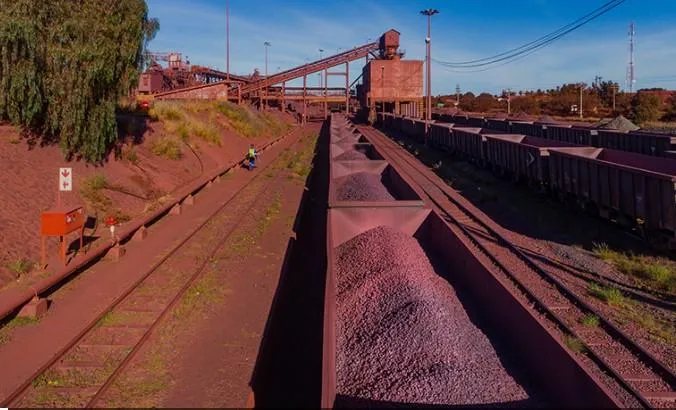Assmang's Beeshoek Mine faces uncertain future as employment hangs in the balance
MINING

In a notice on the retrenchment, Assmang notified its stakeholders that an approved recovery plan hinging on AMSA committing to a three-year deal to off take at least 2.2 million metric tons per year was scuppered at the final moments.
Image: Supplied
As South African steelmaker Arcelormittal (AMSA) vacillates on a crucial three-year contract, Assmang's Beeshoek Iron Ore Mine in the Northern Cape has found itself in dire straits, reflecting broader challenges within the mining sector.
With a staggering R3.6 billion impairment loss annually and ongoing production declines, the mine is exploring drastic corrective measures, including the potential retrenchment of over 700 jobs.
This comes as Assmang, the operator of Beeshoek Mine, has issued a notice of retrenchment to its employees and is conducting a consultation process with labour on the possibility of saving the threatened 700 plus jobs.
In a notice on the retrenchment, Assmang notified its stakeholders that an approved recovery plan hinging on AMSA committing to a three-year deal to off take at least 2.2 million metric tons per year was scuppered at the final moments.
"In late June 2025, in an unexpected turn of events AMSA confirmed that they would not sign a three-year contract with Beeshoek. Prior to this, they did not give any indication that they were not willing to sign a three-year contract with Beeshoe," Assmang said.
"If anything, AMSA had reinforced its intention to enter onto a three-year contract prior to this. This is a disappointing turn of events, one over which the company does not have any control. Moving forward, Beeshoek intends to discuss with unions the potential closure of Beeshoek."
The failure to finalise the contract has drastically undermined the mine’s operational viability. Without a steady influx of revenue, Beeshoek incurs an average monthly expense of R72 million, leading to annual losses of R2.6bn per annum for AMSA.
Over the past three financial years, Beeshoek has recognized impairment losses totalling R3.6bn on all its assets as the mine is no longer economically viable.
The mine’s operational lifespan currently stands at just six more years, producing a mere 2.2 metric tons annually—a stark contrast to the ambitious plans laid out in previous years.
In an effort to navigate the evolving landscape, the Beeshoek management devised numerous strategies aiming to improve sustainability, including a proposal to remove high stripping pits to minimise waste and significantly reduce operational costs.
Despite these efforts, production volumes have dwindled, primarily due to reduced offtake from AMSA.
The inability to secure a three-year contract has left Beeshoek reliant on a month-to-month agreement, heightening uncertainty and operational challenges.
Moreover, the escalation of input costs—ranging from a 60% rise in diesel prices to a 65% increase in bulk explosives—has created significant financial pressure.
The mine is now unable to replace ageing machinery or invest in necessary capital for maintenance without the assurance of a long-term contract, further complicating the path to recovery.
Trade union Solidarity on Tuesday voiced concerns regarding the proposed retrenchments, calling them a devastating blow not just to employees but also to the local community around Postmasburg, which relies heavily on the mine's economic contributions.
Adéle Rossouw, Solidarity's organiser for the mining sector, emphasised the dire implications of the mine's potential closure, citing its significance as a lifeline for local families.
“The problem is that Beeshoek supplies iron ore only nationally and is therefore at the mercy of the steel industry’s own failings. Yet, Beeshoek has always been able to deliver profitable, high-quality ore, and surely there must be a suitable market,” Rossouw said.
“Due to the fact that they do not export, and since their only client can no longer buy from them, the worst possible option is now being considered.”
Solidarity is expects thorough consultation on practical alternative options for employees, including employment opportunities at other mines in the area.
Meanwhile, Assmang's Cato Ridge Works (CRW) operations and business will also close permanently and all 600 affected employees will be retrenched on August 31, 2025. Its Malaysia business is also being sold.
“This decision has been reached after a comprehensive review of CRW's operational and financial position,” said Assmag's parent company, African Rainbow Minerals, last month, which has well known South African businessman Patrice Motsepe as its biggest shareholder.
“Despite sustained efforts to explore alternatives to closure, the operation has continued to experience significant and unsustainable financial losses.”
BUSINESS REPORT